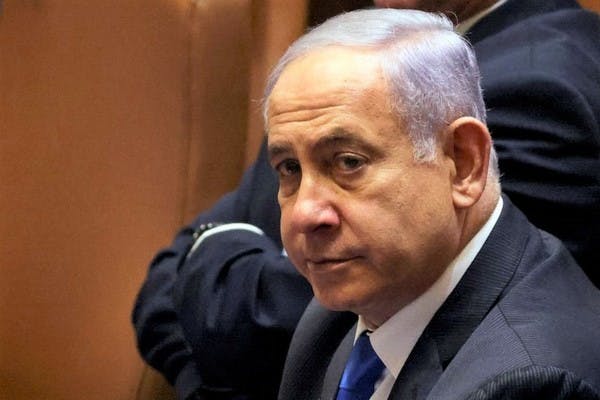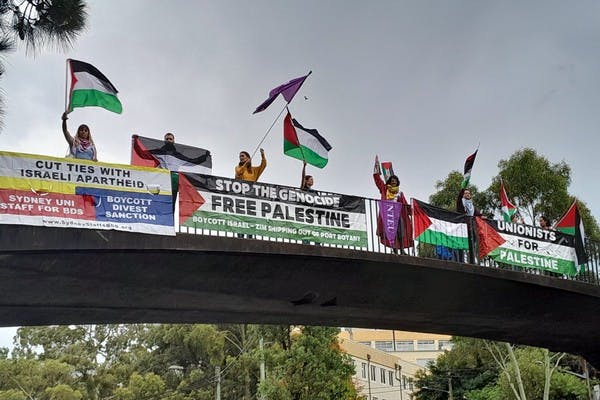Published: 24 March 2023
Last updated: 5 March 2024
Jewish and Israeli holidays have become flashpoints for resentment and violence in the West Bank and East Jerusalem, writes SAM STEIN.
With Purim behind us and Pesach approaching, it’s a busy and stressful time for Jews everywhere but it is also a time for joy, tradition, family and community.
But, for Palestinians in the Occupied Territories, Jewish holidays are times of fear and, sometimes, violence. The recent attack on Palestinians by settlers in Huwara on Purim - a continuation of the pogrom that occurred a week earlier - is only the most recent example.
Last year, Jerusalem Day was a focus of violence, with more than 150 Palestinians hurt in clashes with Israeli police around the Old City. The year before there was a violent rampage on Simchat Torah in the Palestinian village of Mufagara.
Awdah Hathleen, a Palestinian from the South Hebron Hills, also known as Masafer Yatta, said Jewish holidays put Palestinians on alert. “We know exactly when all of the holidays are … we don’t know what they’re about, but we know what happens on them.”
Hathleen said it was common for charts to circulate in Palestinian communities detailing the exact dates of upcoming Jewish holidays, with an implication to stay out of the way. Palestinian newspapers also publish articles detailing expected closures and disruptions to daily life.
“We know about Purim weeks in advance ... even the police warn people to stay inside.”
Palestinian activist Issa Amro
While the exact experiences vary in East Jerusalem, Hebron, or Area C of the West Bank, to Palestinians an upcoming Jewish holiday means, at best, disruption and, at worst, the looming threat of settler violence.
Mohammed, a resident of East Jerusalem, recalls that as a child, he associated Jewish holidays with closures that affected his father’s business. He is conscious of the increased military presence in the Old City of Jerusalem on Jewish and Israeli holidays, particularly on Israeli Independence Day and Jerusalem Day.
Unlike many Palestinians, Mohammed’s father, who works in the Old City, usually attempts to open his business on Jerusalem Day and Mohammed is afraid he will be hurt.
”I remember, a few years ago, I lied my way through the Old City to check on him. And even then, I wasn’t able to [reach him]. There were just so many soldiers around his place, and it was one of the only places that was still open.”

Palestinian human rights activist Issa Amro said Purim is the holiday most feared by Palestinians in the city of Hebron. It is the anniversary of the Baruch Goldstein massacre and has long brought an inclination to violence by settlers, who follow the tradition of getting drunk on the festival.
“We know about Purim weeks in advance ... even the police warn people to stay inside,” Amro said. This year, Amro’s fears turned out to be well-founded, as settlers spent Purim throwing stones at his house.
Another day that Amro and other Palestinians in Hebron associate with violence is Shabbat Chayei Sara, the Shabbat a month after Simchat Torah when the portion recalling the death of Sara is read.
In Hebron, where Sara is buried, Shabbat Chayei Sara is an annual celebration and religious Israelis gather in massive numbers. The gatherings restrict Palestinian movement and sometimes lead to outbreaks of violence.
Everyone interviewed agreed that, within Palestinian society, there is no meaningful distinction made between Jewish religious holidays and Israeli national ones. For the average Palestinian, the settler movement and the military regime are equally associated with Simchat Torah and Purim as they are with the Jerusalem Day flag march.
But there is hope for those who want to push back against the association of Jewish holidays with violence and military rule. Mohammed, Amro and Hathleen all said that becoming friends with Jews involved in peacebuilding has helped them unlearn their negative associations with Jewish holidays.
“I greet my Jewish friends on the holidays, and they greet me on the Muslim ones,” Amro said.
But it will take more than a few interpersonal friendships if we want to reclaim Jewish ritual from the settler movement. It requires mass, concrete, condemnation of travesties like those that occurred in Huwara, Mufagara and Hebron. We can’t simply say that we’re opposed to these horrible acts; we must join the movement to ensure they don’t happen again.
Photo: Jewish kids dressed as Arabs for Purim in Hebron (Anne Paq/Activestills)



